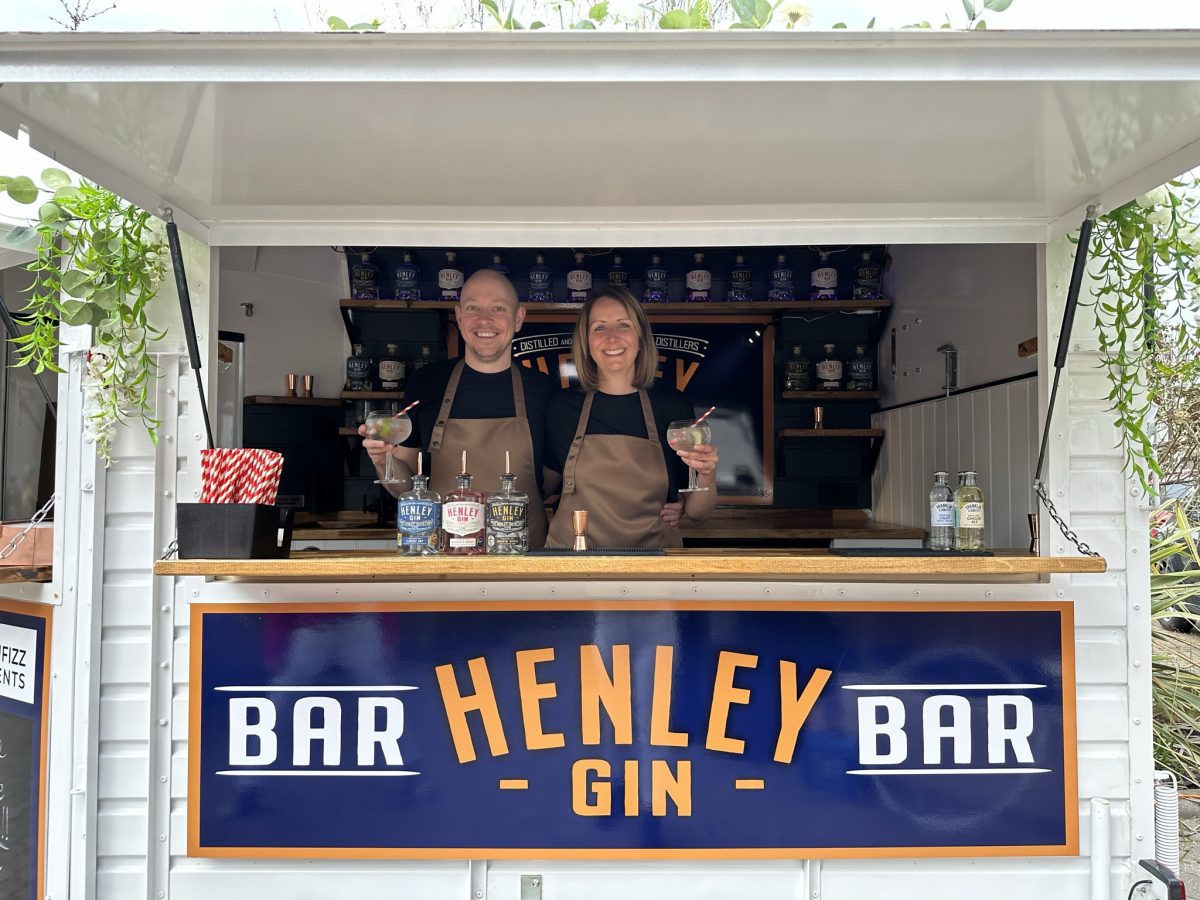Starting Your Own Mobile Bar Business – Things to Know

A lot of people love the idea of running their own business, and are particularly taken in by the idea of setting up a mobile bar business – and why not, while it is hard work it is also loads of fun. You get to meet so many lovely people who are in the mood to celebrate, you can’t help but have a great time yourself!
There are however many things you will need to consider and plan for, it is not as easy as it may initially look. This guide is by no means exhaustive, and I am not an expert – I absolutely encourage you to do additional research to validate everything yourself. With that disclaimer in place, here are some of things you need to know to get started, based on my experience in the UK.
Licensing (for you)
You’ll need a personal alcohol license to operate as a mobile bar. To get one you’ll take a training course, which are offered as in-person and virtual options, and then you will need to take book and take a multiple choice exam under exam conditions. There are many companies offering these courses (search for “APLH course”), I personally completed mine virtually through The Digital College.
Licensing (for events)
A Temporary Events Notice (TEN) given under the Licensing Act 2003 allows the sale of alcohol, the provision of late night refreshment or the provision of certain public entertainment from a specified premises in England and Wales.
You’ll need to get a TEN to authorise small-scale events and it will allow you to hold a licensable activity at a venue that is not currently licenced (or to hold or extend activities an existing licence does not permit. You apply for a TEN from the local authority where the event is to be held, and they need to be submitted with an 10 working days notice. You’ll learn about TENs in your APLH course, and you can also read more on the government website here.
Insurance
You’ll want to have your mobile bar (and possibly your stock plus other large items like your generator) covered for fire and theft. You’ll also need Liability insurance (Public, Employers and Product). Different events (festivals, fairs etc) can require you to have different levels of public liability insurance, I have seen some need £2 million and others up to £10 million – you’ll need to show proof you have the right level of insurance when you apply for such events.
Mobilers offer specific insurance for mobile bars, and are who we are currently insured through. You’ll even get a discount if you’re a member of the Facebook community mentioned later.
Food Safety
Mobile bars need to be registered with your local council (28 days before you start trading), and they need to comply with food safety regulations. Some time after you register the council, they will arrange to come and inspect your operation, and give you a rating from the Food Hygiene Rating Scheme (https://www.food.gov.uk/safety-hygiene/food-hygiene-rating-scheme ). You are of course aiming for a rating of five, and many events will only accept vendors that have a 4 or 5 rating. To get that rating, a great place to start (and a requirement of registration) is to take a Food Safety course (at least Level 2) and also an Allergen Awareness Course. I went through Virtual College, and I really liked their learning materials.
The Food Standards Agency has produced some great resources to help you comply with all the expectations, which includes processes on how you handle food (garnishes are food!), how you clean, how you store things, how you train staff and ensure they follow procedures and more. Your Environmental Health Office (EHO) at your local council should be able to give you specific guidance of anything else they are looking for, as every officer has slightly different things they are looking for.
In addition to your own local council (where you are registered) inspecting you upon registration (and periodically thereafter), you may also be inspected at any time by the council where you are hosting / attending an event – so make sure you stay true to your processes and keep your paperwork with you.
Electrical Safety
You’ll want to have the electrics of your trailer certified by a suitable electrician, ultimately providing you with an EICR certificate. While I never got to the bottom if the certification is required by law, most organised events will want you to share this certification upfront when applying for a pitch. Also, who wouldn’t want to ensure their electrical installation is safe.
You’ll also need to have any electrical devices in your bar (fridges etc) PAT tested.
WASTE MANAGEMENT
As you are a business, you will need a commercial arrangement to manage your waste – likely lots of glass, but also mixed recycling and general waste too. Make sure you contract with a reputable company. For each load of non-hazardous waste you remove off your premises you need a waste transfer note, or document with the same information (such as an invoice from your supplier). Check out the government website here to learn more.
Your Bar
Obviously to run a mobile bar you will need…a mobile bar! Some people buy something brand new / custom made for them, and others take on their own renovation project like we did. Soon Oli will be sharing a blog post on our renovation project, where you can learn more about what was involved. Spoiler alert, it was a lot of work and took about 9 months (on spare evenings and weekends) to complete! But I love the end result so much, so it was totally worth all of Oli’s time 😊
Power Source
You’ll need to think about buying a generator unless you are sure you can plug into electricity at every event you will be attending. You have a choice between petrol and diesel (we went with petrol as significantly cheaper). You’ll need to consider how loud it is (and also likely look into some acoustic panelling or boxing to muffle the noise even further), what wattage you need (it needs to be enough to handle all of your electrical devices at the same time), how easy it is to start, and how easy it is manoeuvre and transport. We went with this Champion Generator (affiliate link).
Other Equipment
While not an exhaustive list you may need: bar matts, straw and napkin holders, jiggers, bottle openers, pourers, cocktail making equipment. If you are serving beer, there will be additional equipment that I am not familiar with.
You’ll likely need large cool boxes to store ice and you will want good quality ones that can store ice for several days. These brands are great for keeping ice: Coleman Cool Box and Yeti Cool Box (affiliate links).
You’ll need a means of taking payment (we use Zettle), and you should consider having a signal booster to ensure you don’t struggle to take card payments. Our booster has two SIMS for two different providers, to give us every chance!
Finally you’ll need your consumable stock including cups, paper and straws. We use paper for all three, paper cups are where it is at! Seriously, many events require paper anyway and we try to avoid plastic where ever we can.
Decorations
Once your bar is kitted out with the basic equipment, you’ll want to add some bling to make it stand out and look special, aligned to your brand and your offering. We went for beautiful floral arrangements from IvyCruz, Neon signs from Neon Filter and fairground lights signs from Voltaic Signs. I am sure there will be more to come, decorating is addictive!
Suppliers and Partners
If you are not already in the alcohol trade through other businesses, you will need to find the right suppliers. You have the option of using wholesalers or forging your own partnerships with local and artisan suppliers (or a combination of both). Think about your mixers as well as your spirits and wines.
Staff
Depending on the size and length of events you will be doing, you may need to have some additional staff lined up to support you. Work out how many drinks one person can serve per hour (will vary depending on what you are serving), and factor in time for restocking. If the event is long, you’ll want to factor in a few breaks too.
Transporting and storing your stock
Stock is heavy and / or bulky. You will need somewhere to store it when you are not doing events, and you will need the means to be able to transport your stock to events. Calculate how many drinks you hope to sell, and work out how much stock that equates too – it can be quite shocking initially to see how much room that takes up! Don’t forget you need to transport all of your decorations, generator, cool boxes and ice, consumables, other equipment too. Consider if you need to buy a van and what size you need.
Getting Gigs and Events
Don’t be under the illusion that “if you build it, they will come”…building up your business will take time and effort. Make sure you build a solid plan on how you are going to market yourself and attract bookings. Organised events often use the same vendors year after year, so don’t rely on getting into these events (at least straight away). So be sure to explore other booking avenues too.
Got more questions?
I personally have found the Converted Horse Box Community on Facebook to be a great source of information and support. Once you have joined, make sure you search for your question first (as it likely has been asked before), but otherwise feel free to post your questions to the helpful community!

